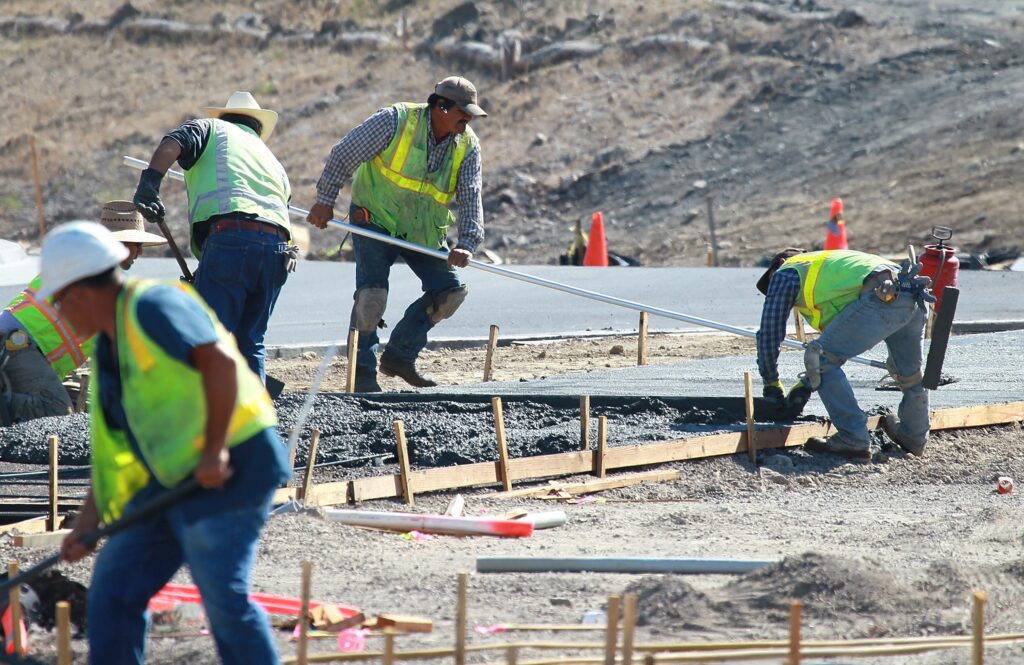California, with its thriving economy and diverse population, has long been a hub for building and development. Whether it’s the booming tech sector in Silicon Valley or the sprawling residential neighborhoods in Southern California, there’s no shortage of opportunities for contractors. However, to navigate the state’s intricate regulatory landscape and succeed as a contractor in California, you must be well-versed in the nuances of the industry.

1. Getting Licensed: The Crucial First Step
California is stringent about its contractor licensing, so this is where your journey begins. The Contractors State License Board (CSLB) is responsible for issuing contractor licenses. Some key points to note:
- Examinations: Most applicants need to pass a written law and business examination. Depending on the type of license sought, a trade exam may also be required.
- Experience: Before taking the exam, ensure that you have at least four years of experience at the journeyman level or higher in the past ten years. This experience can also be from being a foreman, contractor, or owner-builder.
- Bonding: All contractors must have a contractor’s bond in place. It serves as a financial assurance in case of disputes or issues arising from your work.
2. Project Bidding and Understanding California Regulations
California has several unique laws and regulations that contractors must adhere to, especially when bidding on public projects:
- Public Works Projects: If you’re considering bidding on public works projects, you must register with the Department of Industrial Relations. This ensures you’re adhering to prevailing wage laws.
- California Environmental Quality Act (CEQA): The state places a high emphasis on environmental protection. Familiarize yourself with CEQA, as many construction projects could require an environmental impact report or statement.
3. Business Considerations
Being a successful contractor isn’t just about the quality of your work. There’s also the business side of things:
- Insurance: Liability insurance isn’t just recommended; it’s essential. It’ll protect you against claims that may arise due to injuries, damages, or other accidents.
- Taxes: Ensure you’re up-to-date with California’s state tax requirements. You may need to pay use tax on out-of-state purchases or equipment rentals.
- Employee Relations: California has strict labor laws. If you have employees, you must understand overtime, break periods, sick leaves, and other labor rights.
4. Navigating California’s Geographical and Climate Challenges
California’s diverse geography and climate present challenges:
- Seismic Requirements: Given California’s earthquake-prone nature, knowledge of seismic safety requirements is essential.
- Fire Regulations: With increasing wildfires, be aware of building codes that emphasize fire safety, especially if you’re working in high-risk zones.
- Water and Drought: Water conservation laws and drought-tolerant landscaping are crucial in many parts of the state.
5. Continuous Learning and Networking
Contracting in California is a dynamic field. Ensure you:
- Stay Updated: Regulations, building codes, and industry standards can change. Regularly attend workshops, seminars, and courses.
- Network: Join industry associations such as the Associated Builders and Contractors (ABC) or the Building Industry Association of California. It’s a way to meet peers, learn from industry veterans, and get a heads-up on upcoming projects.
6. Embracing Technology
Modern contractors in California benefit from the tech industry’s innovations:
- Project Management Software: Tools like Procore or Buildertrend can help streamline operations.
- Virtual Reality (VR) and Augmented Reality (AR): VR can be used for client walkthroughs, while AR can aid in project visualization during the early stages.
7. Sustainable Building Practices
California is at the forefront of sustainable building and green practices. From energy-efficient appliances to solar panel installations, the state offers numerous incentives for contractors who embrace eco-friendly practices. Familiarize yourself with the California Green Building Standards Code, often referred to as “CALGreen.”
Conclusion
While California offers a vast market for contractors, success here demands more than just craftsmanship. It’s about understanding and navigating the state’s unique regulatory, environmental, and cultural landscape. Staying informed, being adaptable, and building a strong network will help ensure your contracting business thrives in the Golden State.
Rhino Builders
Rhino Builders Oakland
Rhino Builders Pleasant Hill
Rhino Garage Conversion Bay Area
Rhino Garage Conversion San Francisco
Bay Area Home Remodelers
Rhino Concrete Bay Area
Rhino Siding & Window Replacement
Rhino Window Replacement San Francisco
Rhino Concrete Oakland
Rhino Concrete Lafayette
